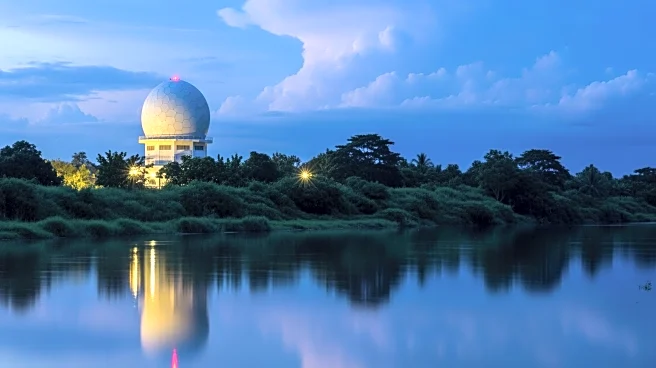What's Happening?
The Orionids meteor shower, a celestial event resulting from Earth's passage through debris left by Halley's comet, is currently active and will peak between October 21 and 22. This annual meteor shower is renowned for its bright and fast streaks across
the night sky, particularly near Orion's Belt. The shower has been visible since October 2 and will continue until November 7, according to the International Meteor Organization. This year, viewing conditions are expected to be particularly favorable due to the new moon phase, which minimizes light interference, enhancing the visibility of the meteors.
Why It's Important?
Meteor showers like the Orionids provide a unique opportunity for both amateur and professional astronomers to observe and study cosmic phenomena. The event is significant for educational purposes, inspiring interest in astronomy and science among the public. Additionally, it offers a chance for communities to engage in outdoor activities, fostering social interaction and appreciation for natural wonders. The Orionids, linked to Halley's comet, also serve as a reminder of the interconnectedness of celestial bodies and their impact on Earth, highlighting the importance of space exploration and research.
What's Next?
As the Orionids continue through November 7, enthusiasts and astronomers will likely organize viewing events and educational sessions to maximize public engagement. Observatories and science centers may offer special programs to educate the public about meteor showers and their origins. The favorable conditions this year could lead to increased interest and participation in astronomy-related activities, potentially influencing future funding and support for space research initiatives.
Beyond the Headlines
The Orionids meteor shower underscores the cultural and scientific significance of celestial events. It highlights the human fascination with the cosmos and the ongoing quest to understand our universe. Such events can inspire artistic expressions and cultural narratives, enriching society's appreciation for science and nature. The shower also emphasizes the importance of preserving dark skies, advocating for policies that reduce light pollution to ensure future generations can enjoy these natural spectacles.














